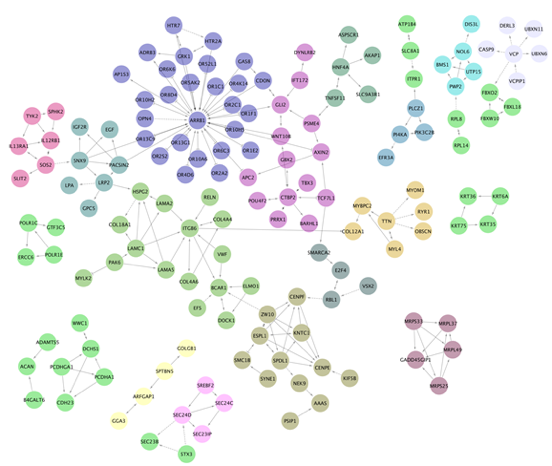PILOT 4
The study of genomic modifiers in sickle cell disease
Investigator: Erin Crowgey, PhD
Mentor: E. Anders Kolb, M.D.

Erin Crowgey, PhD, who recently earned her doctorate in bioinformatics at the University of Delaware, has joined Nemours as Research Associate Director of Bioinformatics. Dr. Crowgey has unique expertise in identifying genetic variation captured from regions of interest in DNA samples. To do this, she develops software scripts (sometimes referred to as pipelines) that sift through enormous amounts of data with the goal of identifying genetic alterations that are linked to a specific disease.
The sequencing of the human genome is leading to advancements in personalized medicine, but the process of associating genetic variation to a specific human disease and treatment is still complex. Recent progress in DNA sequencing technologies, known as next generation sequencing (NGS), is enabling the detection of many genomic alterations. Experts with training and skill in bioinformatics and the ability to analyze massive volumes of genomic data are fostering novel approaches to the study and treatment of diseases like cancer and sickle cell disease.
Sickle cell disease (SCD) is a chronic disorder marked by end organ damage leading to varying degrees of organ dysfunction and disability. Among the most quality-of-life-altering and life-limiting end-organ effects of sickle cell disease are chronic kidney disease and stroke. Cerebral vascular disease (CVD) can present early in childhood with a devasting and recurring course. Unfortunately, CVD in patients with SCD predicts a poor prognosis and early death in affected patients. Identification of risk factors is crucial for early and like saving interventions for patients with severe CVD. Potential genomic modifiers for CVD for SCD have been previously reported; however, the majority of these efforts focus on adult populations with a broad phenotype range.
The goals of this pilot project are to utilize family pedigrees and next generation sequencing (NGS) to enhance our understanding of disease modifier inheritance patterns. This study will focus on a severe and early form of CVD, and will leverage a trio analysis -mom, dad, proband – to improve the annotation and understanding of genomic markers enriched within the pediatric CVD cohort. Additionally, this pilot proposal will focus on the integration of the genomics data with our Sickle Cell Knowledgebase, which contains de-identified electronic healthcare record data, to create an effective system for utilizing genomic data for understanding population trends and identification of outliers.
System genomic approaches are quickly becoming the focus for enhancing our limited understanding of complex phenotypes, as there is an inherent strength in combining multiple data types and resources to unravel the cellular features that are associated, or bridge the gap, between phenotype data and genomic variation. This project will benefit from the strong foundation that the Clinical Data Management (CDM) core has established in regards to the standardization of phenotype type data entered at the bedside (SmartForms), and will leverage a team science approach with their support.

Publications:
https://www.ncbi.nlm.nih.gov/myncbi/browse/collection/42535355/?sort=date&direction=ascending
